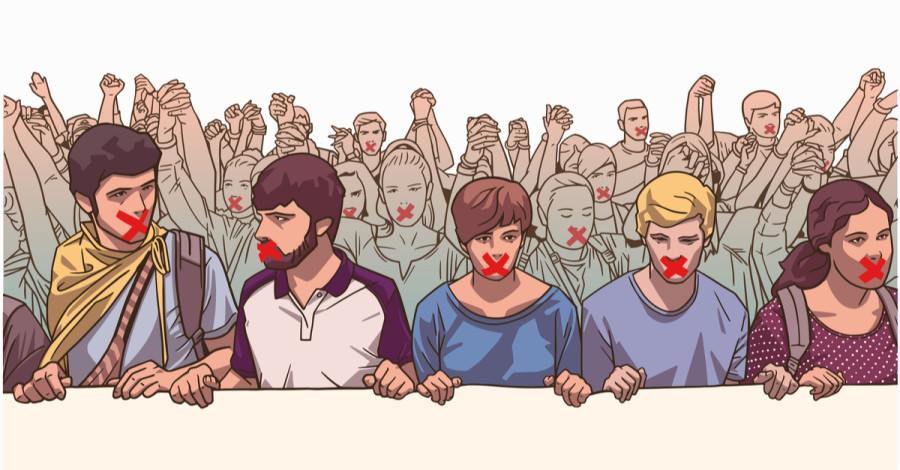Editorial
This government wants to take us back to Panchayat era—one bill at a time
The KP Sharma Oli administration is putting the squeeze on freedom of speech.
When the controversial Information Technology Management Bill was tabled in Parliament earlier this year in February, it had raised several concerns about freedom of speech online. One provision in the bill states that ‘inappropriate use of the electronic system’ could invite fines ranging from Rs300,000 to Rs1 million and jail time between one and 10 years, or both. This is worrying, as the provision’s vague wording leads it to be open to interpretation—and authorities could do so to suit their own interests. But as if that was not enough, on Sunday, a House committee passed the insidious IT Management Bill. Our ability to speak freely was hard-won, but it seems to have been easily lost.
Read: Everything you need to know about the IT bill
The bill, which was bought about to replace the existing Electronic Transactions Act, has been touted by the government as the most comprehensive and clear piece of legislation to address long-held concerns around information technology management. But the wide scope and vague language used in the provisions could give broad powers to authorities to block social media platforms if they are not registered in Nepal, threatening to curtail freedom of speech online as well as increase surveillance of personal data.
Thanks to social media, the ecosystem of information and its distribution has changed radically. And this is precisely what the fragile government fears. Cybersecurity is necessary, but authorities are clearly misusing their power when they are using ‘safety’ as a weapon to gag the press. In its defence, the government claims that the law will not stifle freedom of expression, but pave the way for data security and accountability of internet companies in Nepal. But who is it trying to fool?
Increasingly, the Oli-led government is scuppering democratic reform and showing authoritarian tendencies. And as recently as last week, the chairman of the Communist Party of Nepal, Pushpa Kamal Dahal, said that the media was in the hands of the bourgeoisie. Only he knows what he meant, but making such arbitrary and sweeping statements is unbecoming of a co-chair of a ruling party. Dahal, after administering an oath to a group of journalists who supposedly display allegiance to the Nepal Communist Party, even called upon them to defend the party and counter criticism.
Increasingly, it seems the country is returning to the dark days of Panchayat when freedom of speech was limited, and those who pandered to the man in charge had better chances of living an easy life. Around the world, governments are increasingly putting restrictions on free speech, and the Oli administration is taking a leaf out of it. As thinking beings, seeing something that the government claims is good and pointing out why it is bad is essential to maintain checks and balances in any democracy.
But recent decisions taken by the government are making a farce out of it. The notion that certain views can be silenced, and only the view upheld by a few on top are right, will leave no space for dissent. What counts as offensive is subjective, and governments in democratic countries have no right to impose their subjectivity and force everyone to be in line with their thought process.
***
What do you think?
Dear reader, we’d like to hear from you. We regularly publish letters to the editor on contemporary issues or direct responses to something the Post has recently published. Please send your letters to [email protected] with "Letter to the Editor" in the subject line. Please include your name, location, and a contact address so one of our editors can reach out to you.




 11.12°C Kathmandu
11.12°C Kathmandu














